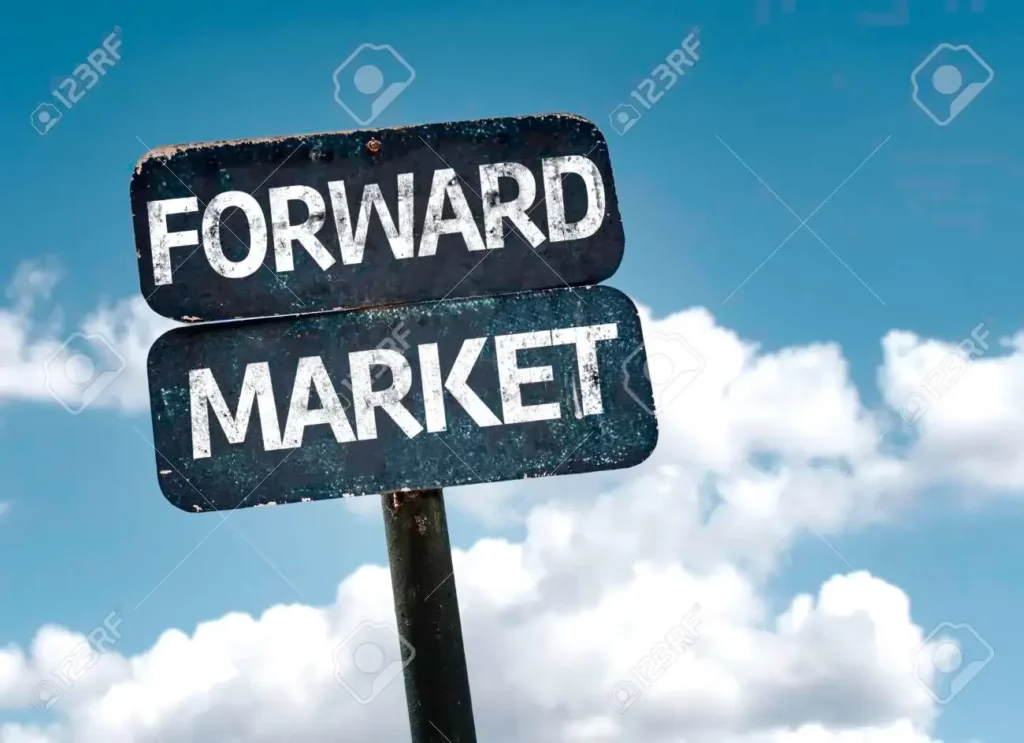
Introduction
We will dig into the idea of the forward market in this extensive guide, examining its nuances, capabilities, and usefulness in the financial industry. The forward market is an essential part of the world financial system because it gives people and companies useful tools for managing risk and securing future transactions.
What is a Forward Market?
A financial over-the-counter (OTC) market where players trade forward contracts is referred to as the forward market. These agreements between two parties are for the purchase or sale of a certain item at a defined price on a given date in the future. The forward market provides for settlements at a later period, often ranging from a few days to many months, in contrast to regular spot markets, where transactions take place instantly.
Key Features of Forward Contracts
1. Customization
One of the primary advantages of the forward market is the flexibility it offers in contract customization. Parties involved in a forward contract have the freedom to tailor the terms according to their specific needs, such as choosing the contract size, maturity date, and underlying asset.
2. Hedging Against Price Fluctuations
Forward contracts are useful risk management instruments that give participants the ability to insure against changes in the price of the underlying asset. Businesses dealing with commodities, currencies, or other volatile assets would especially benefit from this since it gives them pricing certainty and lessens the impact of market volatility.
3. Absence of Intermediaries
Forward contracts are often private agreements made directly between the two parties involved, unlike futures contracts sold on exchanges. Greater privacy and personalization are possible, but there is also a counterparty risk because there is no clearinghouse to ensure that the contract will be fulfilled.
How Does the Forward Market Work?
1. Market Participants
A wide spectrum of players, including businesses, financial institutions, investors, and speculators, are catered to by the forward market. Each participant may engage in forward contracts for a variety of reasons, including hedging, speculation, or arbitrage.
2. Role of Financial Institutions
In order to make forward contracts possible, financial institutions are essential. They serve as middlemen, bringing together buyers and sellers and seeing to it that the contracts are properly carried out. Financial institutions may also provide advice services to customers looking for help navigating the difficulties of the forward market.
3. Pricing Mechanism
The current spot price of the underlying asset, interest rates, the length of time before maturity, and market demand are some of the variables that affect how much forward contracts cost. To arrive at a fair value for the contract, these factors are taken into account throughout the process of setting the forward price.
Forward Market vs. Futures Market
The forward market and the futures market are fundamentally different from one another, even if they have many things in common.
Similarities:
- Both transactions involve purchasing and selling contracts for a future payment.
- Both markets are available for hedging and speculating by participants.
Differences:
- Standardization: Forward contracts can be customized and are traded over the counter in contrast to futures contracts, which are standardized and transacted on exchanges.
- Counterparty Risk: Forward transactions have direct counterparty risk, but futures contracts are protected by the presence of a clearinghouse.
- Regulation: While the forward market operates with fewer regulatory restrictions than the futures market, the futures market is subject to strict regulatory scrutiny.
Risks Associated with the Forward Market
Forward contracts have inherent risks, just like any other financial product, which participants must take into account.
1. Price Risk
Price risk refers to the probability that the market price of the underlying asset may change negatively and result in one of the parties to the contract suffering financial losses.
2. Counterparty Risk
Forward contracts don’t have the clearinghouse protection, thus there is a chance that one party may break their contractual duties, thereby causing financial losses for the other side.
3. Liquidity Risk
It may be difficult to exit or join positions quickly in the forward market for some assets due to a lack of liquidity, especially for less frequently traded instruments.
Conclusion
In conclusion, the forward market is essential to the world’s financial system since it gives players useful instruments for risk management, price hedging, and contract customization. For people, companies, and investors looking to make wise financial decisions, understanding the subtleties of the forward market is crucial. Always consider the dangers involved as you investigate the potential of the forward market, and where necessary, seek the advice of experts.
FOR MORE INFO CLICK THIS SITE:https://learningsharks.in/
FOLLOW OUR PAGE:https://www.instagram.com/learningsharks/?hl=en
